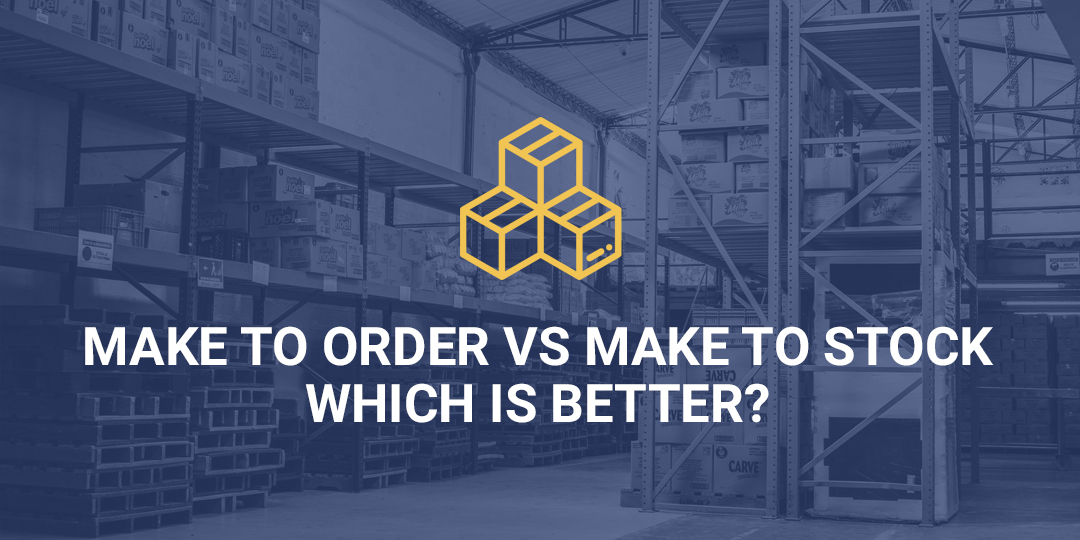
When you’re trying to implement the best production type for your manufacturing facility, you have a few processes to choose from. The most common options are make to order (MTO) and make to stock (MTS). In this blog, we discuss the primary differences between these two production processes and which one may be the best choice for your manufacturing operation.
Make to Order
Make to order products are manufactured when a customer orders them. As a result, they tend to be fully customizable and result in an end product that is completely unique, unlike their mass-produced counterparts.
MTO manufacturing is especially common in luxury car manufacturing. Companies like BMW allow customers to customize their new vehicle’s engine, interior, exterior, entertainment system, and other features. They know that they may have to wait anywhere from weeks to months for their customized car, but for them, it’s worth it.
What Are the Advantages of Make to Order?
A make to order product can benefit your business in the following ways:
Reduced Waste: By building products that only add value to the customer, you don’t waste money or production time on unnecessary materials and finished goods.
Improved Efficiency: Manufacturing takes place when you receive the customer’s order. This level of focused production supports greater efficiency in your operation.
Personalized Products: When consumers want a more customized buying experience, they will come to you for one-of-a-kind products that the competition may not have.
What Are the Disadvantages of Make to Order?
Although MTO manufacturing has clear advantages, there are potential drawbacks you need to consider before adopting it.
Inconsistent Sales: There is not always a steady or predictable demand for made to order products, which can make it difficult to schedule production.
Materials Not Always Available: With a make to order manufacturing business, you have to constantly be ready for the next order. If you don’t have the right amount of stock when one comes in, you will have to make a special order, which can delay production.
Customers Wait Longer: Make to order means that your customers have to wait longer to receive their products. While most will understand that custom orders involve a wait time, those who want their goods sooner may go elsewhere.
Implementing Make to Order Systems
Make to order systems work best when you do business in a specialized industry and create products with unique specifications. To ensure that you always have a sufficient supply of raw materials on hand, you should invest in an inventory management system that supports uninterrupted production.
Make to Stock
Make to stock (MTS) manufacturing is commonly used in businesses that mass-produce goods, typically fast-selling consumer products. To determine how much inventory they need on hand at all times, MTS manufacturers review historic trends and consumer reports to anticipate demand. It’s a traditional production strategy used by big-box retailers like Target as well as high-demand consumer goods like shoes and clothing.
What Are the Advantages of Make to Stock?
Although make to stock products are not unique or personalized, there are certain advantages to MTS production:
Easier Resource and Production Management: Since production doesn’t need to wait for an order to come in first, you can buy resources in bulk (saving money in the process) and create a predictable production schedule, which maximizes efficiency.
Scheduling is Simpler: Make to stock manufacturing lets you put together a master schedule that sustains a smooth workflow. While there may be ups and downs, they won’t be as frequent as you encounter in MTO production.
No Wait Times: As soon as your customers place their orders, you can ship the product right out to them, significantly reducing wait time.
What Are the Disadvantages of Make to Stock?
Like make to order production, make to stock has some disadvantages that may or may not affect its compatibility with your business.
Trends Aren’t Always Accurate: Although you can reasonably predict demand based on seasonal spikes and past sales, there’s always the possibility that your products won’t sell as well as you predicted.
Inventory Levels Can Be Difficult to Control: This one follows on the previous point. If your projections aren’t accurate, you may come up short or be left with expensive overstock that you have to discount later on.
Implementing an MTS System
With its strong reliance on purchase history and consumer trends, MTS manufacturers should implement an automated inventory management system that accurately tracks all raw materials and completed inventory at any given time. Like MTO manufacturing, keeping close control over inventory makes production scheduling much easier.
Which is Better?
That depends on your industry and what products you manufacture.
If you want to focus on highly customized products and expensive goods that aren’t sold in bulk (for example, aircraft), make-to-order will deliver the results you want without incurring any expensive storage fees. Once the product is ordered and made, it’s shipped to the customer.
If you mass-produce large quantities of goods (for example, car parts or tools), have little variation in product types, or have warehouses available to store stock for future sales, make-to-stock may be the best option. If you forecast demand accurately, you’ll know how much you’ll need to produce as well as when.
Contact an Industrial Abrasive Specialist
If you use industrial abrasives during your manufacturing process, Fintech Abrasives can provide you with superior-quality sanding belts, sanding discs, and other abrasive products that enhance the quality of your finished product. We support a wide range of industries, from woodworking and metalworking to automotive and more, and will even customize our abrasives to meet your manufacturing needs. For more information about your options, speak to a technician today by filling out our contact form or calling (888) 223-8768.